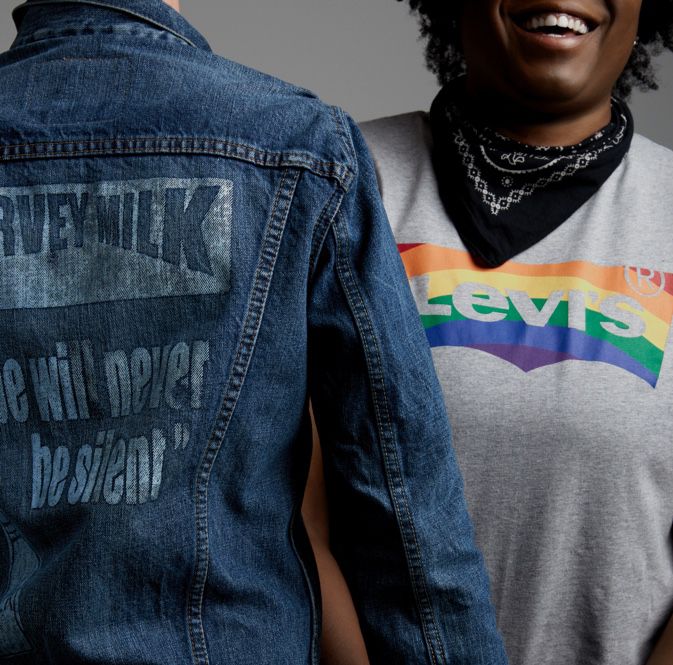I recently came upon a Feministing article by Reina Gattuso. In her article, Gattuso critiques the capitalist exploitation of queer identities:
Today in capitalism, I’m feeling meh about the commodification of queer identity. Most recent object of analysis: This Mic article about Levi’s 2016 Pride Line.
The line, which does at least give a portion of profits to Harvey Milk Foundation, goes for queer dude denim looks and comes accessorized with colored bandanas a la queer and kink signaling systems from days of yore. The idea is that the color and positioning of the bandana corresponds to a sexual identity/preference and were a way for pre-tinder queers to get down. Which is a neat bit of history, but Levi’s why do you have to go around profiting from it?
I agree with some of Gattuso’s critique, but I think there’s a dimension that’s missing. While Levi may benefit financially off of its Pride line, this line also makes pride affirming clothing more available and, likely, more affordable for the average customer. Further, by simply having such a line, Levi contributes to our society’s further acceptance of queer identities, and to the normalization of gay rights.
And that’s a good thing.
But there’s something else to be remembered here.
Large companies like Levi can play an crucial role in protecting the rights of LGBT individuals, particularly in conservative states and conservative areas. Consider that much of the pushback against North Carolina’s HB2 has been spearheaded by corporations choosing not to do business in the state. Consider that Mississippi’s legalization of anti-LGBT discrimination last month has led to similar business backlash. Consider that it was business that forced Governor Mike Pence of Indiana to amend his controversial “religious freedom” legislation last year, and business that led Georgia’s governor to veto a similar bill this spring.
Today in many states it is business, and not the legislature, that serves as the most effective safeguard and protector of LGBT rights.
In fact, this reality has come so far that the Washington Post has taken note, suggesting that Republicans are headed for a sort of double bind where they will be caught between business and evangelicals, between supporting LGBT rights to satisfy business while losing the evangelical vote or opposing LGBT rights to gain the evangelical vote while angering business. Republicans have for decades been the party of business and the party of social conservatives. Increasingly, Republican governors are being forced to choose between the two, at least on LGBT rights issues.
I recently saw a sign for a Pride parade in a small town the next county over. I live in the middle of red state midwest conservatism—very, very red state conservatism. The world is changing, and that a small town in the midst of flyover Trump country holds a Pride event is, for me, a testament of this change. Can you guess who is sponsoring said small town Pride parade? I checked. The answer is Walmart, and a host of other national and local corporations and businesses.
Should we be uncritical of business? No. We should, however, remember that the world is not black and white, and that while business can exploit, it can also uplift.
















